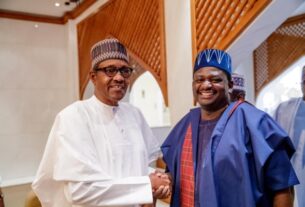Photo: INEC News
Reported incidents of electoral malpractices during the recent off-season governorship polls in Bayelsa, Imo, and Kogi states further attested to the pervasive nature of orchestrated infractions which regrettably has become an undesirable feature of elections in Nigeria. More disturbing however is that electoral offenders are getting more emboldened; owing to impunity exhibited by complicit powerful political actors. To this extent, the delay in the prosecution of persons indicted for electoral offences perpetrated during the 2023 General Elections is objectionable considering the growing indulgence for electoral crimes as manifested in the November 11, 2023 governorship polls. There can be no valid justification for the continued prevarication over the prosecution of indicted electoral offenders whose activities impugned the credibility of 2023 polls.
The trial of those indicted ought to have commenced following the confirmation by the Independent National Electoral Commission (INEC) of the receipt of 215 case files out of which 197 are culpable of serious electoral misconduct amongst the 774 persons reportedly apprehended across the country. Since INEC is statutorily empowered to prosecute electoral offences, the commission should set the ball rolling without any further delay; and key into the offer of the Nigerian Bar Association (NBA) which had indicated a willingness to assist in the prosecution. The faith of Nigerians in democracy would, no doubt, be bolstered by the trial of indicted electoral offenders as such would send the right signals to perpetrators of electoral crimes; particularly those who engage in encouraging and sponsoring such nefarious acts.
While demanding that INEC commences prosecution of persons already indicted, Nigerians are however not oblivious of the fact that the Electoral Body is overburdened by the enormous tasks of organising elections and may have been held back by the rigour of fine-tuning the process of diligent prosecution. Beyond the statutory prosecutorial powers, INEC needs to work with relevant institutions in the justice sector in fulfilling such obligations. Notwithstanding, INEC should do the needful in line with its extant statutory mandate concerning the prosecution of persons already indicted.
Ultimately, there is the need to ensure that INEC is not distracted by prosecution of offences which requires timely and diligent commitment. This reality informed the proposal for the setting up electoral offences commission which arguably should not be a sine-qua-non, since existing laws and legal proceedings are more than relevant enough for adjudicating on electoral offences. What is of paramount importance is for electoral offenders to be held to account as part of the overarching exigencies of restoring a modicum of confidence in the electoral process. As it stands, INEC runs the risk of being accused of abetting electoral crimes if individuals apprehended and indicted for electoral malpractices are not brought to face the law as expected.
The NBA has done well to offer the requisite assistance to INEC for the prosecution of indicted offenders to effectively and expeditiously dispense with the cases ahead of the 2027 General Election. It is worrisome that despite technology devices deployed for accreditation as well as other innovations aimed at curbing electoral malpractices, desperate political actors and their lackeys appear unrelenting in the inordinate quest to thwart efforts aimed at imbuing the electoral process with credibility and transparency.
While incidences of ballot box snatching and other Election Day malfeasance that were hitherto prevalent appear to have been substantially curbed by INEC’s commitment to deploy technology, it is nonetheless lamentable that desperate politicians are attempting to undermine accreditation and as well as falsify results allegedly in connivance with compromised officials of the electoral body. It is imperative to reiterate that the prevalence of electoral malpractices undermines the integrity of the process as well as casts aspersions on the credibility of the outcome of polls.
Democracy becomes endangered when stakeholders are frustrated by the intractable menace of electoral practices often perpetrated through violence. There is a correlation between popular democracy and the electoral process that guarantees free and fair participation unencumbered by malpractices.
The frustration of electoral malpractices becomes more exasperating when indicted electoral offenders are not prosecuted for reasons that are often attributable to impunity. A huge disincentive for popular participation is unwittingly encouraged when the electoral process is wantonly trampled with such criminality passing across as being validated by indifference and demonstrable lack of commitment to prosecution of cases.
Electoral malpractices perpetrated with impunity dampen enthusiasm for participation in future elections; particularly when the identities of such electoral offenders are known but are shielded from prosecution even if apprehended. It is therefore in the interest of democracy to ensure that electoral offenders are held to account for their crimes to serve as a deterrent and to reassure lawful voters of the sanctity of the ballot.
Prosecution of indicted offenders will go a long way in restoring confidence in the electoral process; particularly considering the trend of low voter turnout in Nigeria. It is a matter of serious concern that an audit of voter participation in the 2023 General Election indicates that the rate of turnout was far less than half of the eligible registered voters across the country. Failure to prosecute electoral offenders may result in a further decline in the participation of eligible voters with consequences that are not only unhealthy for the growth of democracy but more importantly, undermine the legitimacy of the outcome of elections.
The Guardian





